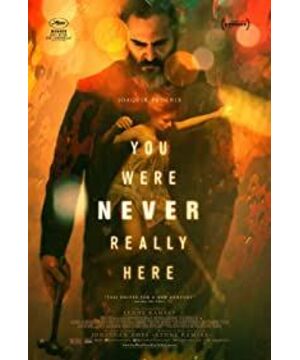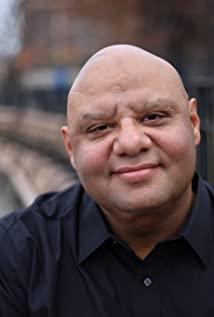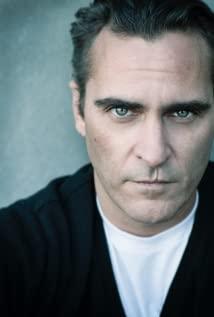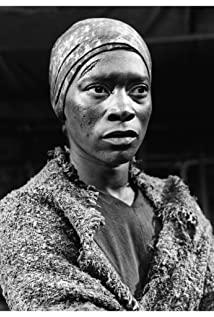First published on WeChat public account: the wild mountain wood
You were never really here
Director Lynn Ramsey Jonathan Eames
Soundtrack Jonny Greenwood Editing Joe Binney
Starring Joaquin Phoenix | Ekaterina Samsonov | Alessandro Nivola
Fragment
"Do you know how Mexicans describe the Pacific Ocean?"
"They say the Pacific has no memory so I'm going to spend the rest of my life there"
- "The Shawshank Redemption: Andy "
At about the 44th minute of the movie "You've Never Been Here", Killer Joe rescued the little girl who was forced to be a prostitute and took her to a safe hotel. The little girl watched TV with an alienated face. The voiceover was "The Shawshank Redemption" "The last sentence Andy said.
Alienation and memory are all my impressions of this film
In the first 44 minutes, British director Lynn Ramsey's picture is as neat and delicate as a British gentleman's suit, the violent scenes are neat and tidy, and the rhythm is fragmented and fast.
The male protagonist named Joe is a killer. In the first 44 minutes of the film, there are a lot of blank scenes and life-like fragments. Killer Joe returns home to spend details with his mother, eat, and watch movies.
When alone and doing nothing, the camera constantly flashes back to the edge of Qiao's calm and unwavering face trying to end his life. The screams and struggles of young children or the gasping of people when they are dying. This group of frequent scenes that appear throughout the film is undoubtedly the heart of Qiao. Deep trauma and despair.
In a series of flashbacks, we can probably infer that he served his country as a soldier, was haunted by the death of a child in the war, his parents often quarreled as a child, and his father may have tended to domestic violence .
This is a person who is immersed in the memory of the past and cannot extricate himself from it. Whenever these unpleasant memories came in the form of flashbacks, he was either using violence or trying to end his own life.
Perhaps because he didn't want the sentimental atmosphere in the film, the director skillfully cut off all of Joe's social relationships, so that after watching the entire film, we only know that his name is Joe and his mother lives together. As for where his father is, What is his surname, if he has friends, if he has a lover, if he has children and relatives, we have no way of knowing~
Therefore, there is an atmosphere of alienation in the film~
As viewers, we have been infinitely close to Joe's real memories and participated in his feelings, but we have no idea of his social connections. This subtle sense of contradiction, the sense of balance between memory and alienation, removes all moral stances and makes the whole story clean and hard~
Director Lynn Ramsey was born as a photographer and is better at expressing stories in the language of the lens, so the words and dialogues are less restrained, which makes the whole film have a calm quality.
I thought the first 44 minutes of the film were a stand-alone story, and in this segment, no real action happened, just Joe's life and memory.
But after 44 minutes of "The Shawshank Redemption" Andy said the line "The Pacific has no memory", the style of painting took a sharp turn. Once again, this amazing British female director shows us how the soundtrack can dominate the narrative.
The second half of the story is quite similar to the movie "Chinatown" that Roman Polanski participated in writing and directing in 1974: the protagonists were inadvertently involved in a larger conspiracy while performing their tasks, and after paying the price, they were determined to investigate. The truth behind it, but inadvertently discovered a bigger secret.
It's just that unlike Chinatown, Joe never wants to fight the whole evil in the past, and the ending of the story is not as gloomy and hopeless as the ending of Chinatown.
It's just not too bad. At the end of you've never been here, Joe once again fantasized about a headshot, but was pulled back to reality by the little girl.
This is the end of the video
We learn from this that their world never ends, and that you and I, as viewers, have never been here, never participated in their lives.
Postscript: The little girl's sense of alienation is stronger. When she first appeared on the stage, her face was expressionless, and even her voice was handled by Mo Huahua. From the beginning to the end, we have no way to enter the depths of her heart, and she has not exposed more emotions.
I watched "The Shawshank Redemption" for the first time in my third year of high school. With so many good lines, I remembered this sentence "Mexicans' interpretation of the Pacific Ocean is a place that has no memory."
That line alone motivated me to write this review.
Are people happier or less fortunate if they have no memory? Will it be anyone or will it always be this person?
The most important thing is, if a person has no memory, who is he?
View more about You Were Never Really Here reviews











